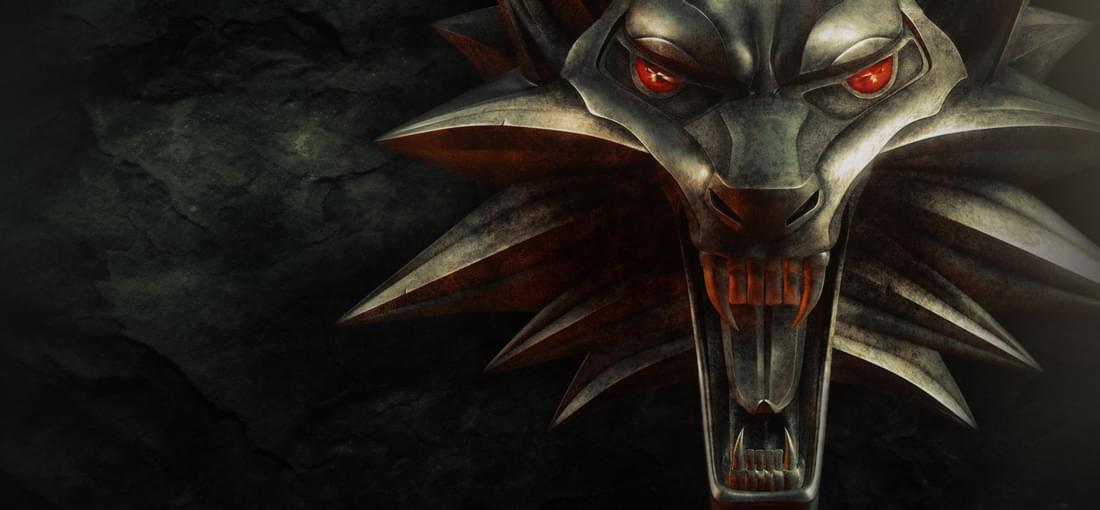


The Witcher does what so few other games have been able to do: present morally ambiguous choices with no right or wrong. Many games such as Mass Effect and Fable try to provide choice to the player, but in the end you either end up a saint or a sinner. In The Witcher, much like Geralt of Rivia's famous Witcher neutrality, you are presented with choices that never force you to choose between good and evil, but rather choices that are equally appealing or equally unappealing. It all comes together to make a refreshing and startling excellent role-playing game. The Witcher is based on the book from Polish author Adrzej Sapkowski, though you don't need any experience with those stories to play The Witcher. You are Geralt of Rivia, a Witcher with a case of amnesia, sent to the lands of Temeria to accomplish his mission and hopefully regain his memory. Witchers are monster slayers for hire, they are mutants, and those who survive the transformation are rendered sterile and completely immune to all disease. However, many people look down upon the Witchers due to their mutation. The story is such an integral part of The Witcher that it's best not to spoil it. However, the concept of the Witchers, of the various factions, the wealthy, the poor, the humans, the non-humans, the racism and hatred fueled by ignorance, it all comes together to form a mature tale like no other. The Witcher's world is raw, full of possibilities and full of characters that endure in an imperfect world and your actions are only play a small part in that greater world. Decisions play a major role in the game, and even the most mundane of choices come back later on with consequences. For instance, depending on one of your decisions in the prologue, certain events will play out differently later in the game. The Witcher never holds your hand, but it also gives you enough guidance to get through the game. The combat in The Witcher is fairly unique. Instead of simply rapidly clicking the attack as you would in games like Bastion or Diablo, your attacks are timing based. One click sets up Geralts first attack, the second click will string together the next set of moves and so on. Your stats will also help with how Geralt parries or dodges during combat, rather than being assigned to separate buttons. You still have the ability to maneuver yourself, rolling back, leaping over enemies, etc, but your main focus is to try and chain attacks. You also carry two swords, a steel sword for humans and a silver sword for monsters. Both of these swords also have three attack styIes: strong, fast and group. Each one works for different enemies. You can also carry other weapons, though I never used them personally since they have no true attack patterns. Spell-casting on the other hand is extremely simplified. There are five signs, and all you have to do is click the right mouse button to make one of them work. They certainly come in handy though, particularly when you are surrounded by multiple enemies or during boss fights. Of greater interest however is Alchemy. The game focuses heavily on Witchers only being complete with their potions, and that holds true through the entire experience. The Witcher is a brutal game and having potions by your side will help ease the difficulty. Some will enable you to see in pitch black tombs. Others will increase the regeneration of your vitality. There is no potion to simply heal you when you are in combat, you must be prepared at all times and the game will punish you accordingly if you are not prepared for a fight. Have your potions ready, your blades coated, your signs amplified and be ready at all times. Loot is unnecessary in The Witcher. All of the role-playing done in the game is by way of your decisions in combat, dialogue, quests accepted, quests completed and your own stats. You won't plunge into the sewers in search of a sword or anything silly. You keep your weapons and at pivotal moments in the story, again, depending on the decisions you have made, you will receive newer and better weapons. But not everyone will receive these goodies. Others may receive different rewards, depending on who they side with and their own decisions. The Witcher isn't about collecting items you don't need and then selling them until you find the one item that is slightly better than the one you already have. This isn't Torchlight, The Witcher is a game focused intently on the story at hand, and it's an excellent tale. The Witcher's aesthetics leave a bit to be desired. To the credit of the art team, they have created a dinghy, grimy and believable world that deserves to be explored, but the graphics lag behind many other games released in the past few years. Character models also are reused a lot and it detracts from the overall experience. None of the main character models are reused, but it is still noticeable when the people you are speaking to all look the same. Otherwise, the music and sound effects are wonderful, helping to add to the game's atmosphere. The voice acting as well is really well done as there are no cringe-worthy voices or awkward moments of dialogue. Prostitutes will openly proposition you on the street, the poor will beg for coin and monsters will howl in the night. Everything about The Witcher ends up working together spectacularly. It isn't just the challenge of the combat and being aware of your alchemy. It isn't just about the characters you encounter or even the story itself. The Witcher's greatest triumph comes from its Shakespearean view on a Witcher's life and profession. Do we hunt the monster in the man or find the man in the monster?